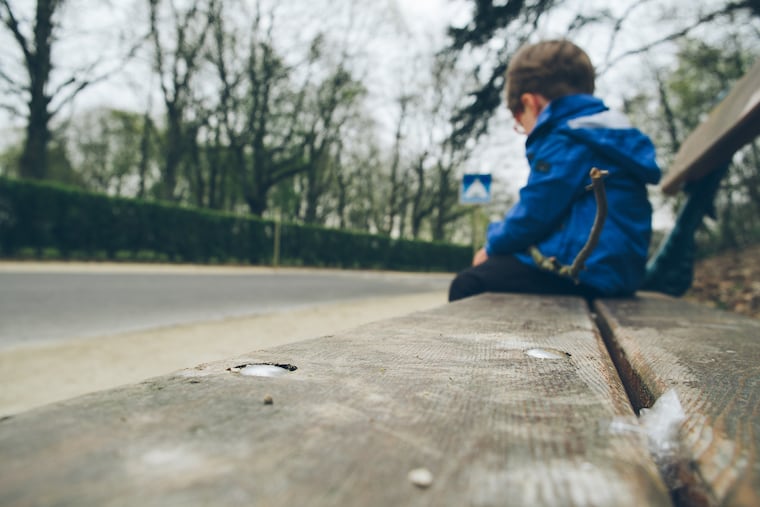Among Philly kids, trauma and poverty are linked to mental illness, learning problems and more, Penn study finds
Forget the school of hard knocks. Trauma and poverty hurts kids, a Penn and CHOP study finds.

Undergoing traumatic experiences in childhood and growing up in poverty can affect brain development and lead to serious mental-health problems, learning difficulties, and earlier puberty than peers experience, according to a new study of Philadelphia youngsters.
Contrary to extolling the benefits of the school of hard knocks, researchers from Penn and Children’s Hospital of Philadelphia (CHOP) found that children exposed to painful experiences and poverty can sustain deep and lasting damage. These children need help, they said.
The study was published last month in JAMA Psychiatry.
“The findings underscore the need to pay attention to the environment in which the child grows,” said lead study author Raquel E. Gur, a professor of psychiatry, neurology and radiology at Penn’s Perelman School of Medicine and director of the Lifespan Brain Institute. “Poverty and trauma have strong associations with behavior and brain development, and the effects are much more pervasive than previously believed.”
“Trauma that happens to young children can have lifelong consequences,” said senior study author Ruben C. Gur, Raquel Gur’s spouse and also a professor of psychiatry, neurology, and radiology at Penn.
The research included 9,498 young people ages 8 to 21 recruited from the CHOP pediatric care network. About 56 percent of participants were of European ancestry, 33 percent were African American, and a little more than 11 percent were other races.
The children and youths were administered cognitive tests and were interviewed about traumatic events they witnessed or experienced, including gun violence, bullying, sexual assault, physical violence and other trauma. About 1,600 underwent MRIs to check their brain development.
The research team found that adversity in the forms of poverty and traumatic experiences is associated with abnormalities across measures of brain anatomy, physiology, and connectivity. The poverty associations were widespread, while trauma was associated more with differences in the limbic and fronto-parietal regions which process emotions, memory, executive function, and complex reasoning.
Both factors were also associated with earlier onset of puberty.
Poverty and trauma each had particular impacts, as well.
Poverty, the study team found, was more related to compromised cognitive ability, with a smaller impact on mental health. Ruben Gur noted that many factors can affect children’s intellectual development. More research will be needed to find precisely what it is about growing up in poverty that resulted in intellectual deficits, he said.
He cautioned that the findings are based on averages and do not mean that all children who grow up under adverse conditions have lower intellectual capacity. Trauma’s effect on cognitive ability was less pronounced.
The researchers said they had not anticipated the extent of trauma’s impact on mental health.
“Those who had traumatic events will have much more severe psychiatric symptoms,” said Ruben Gur. “It would be fair to say that even one traumatic event can substantially increase the risk of psychiatric symptoms, and two or more [events] can give rise to serious mental illness.”
Traumatic events had the largest effect on girls with depression and anxiety, and males with symptoms of psychosis.
“The study suggests that it makes sense for parents and anyone involved in raising a child to try to shield or protect the child from exposure to adversity,” said Raquel Gur. “And for those dealing with children who were already exposed to adversity — as is sadly the case today with refugees from around the world — expect an increase in symptoms.”
She suggested trying to help these children with academic and extracurricular enrichment activities. In more severely affected cases, treatment is available and recommended, she said.
Ruben Gur said more research was needed to explore why some young people are hindered by adversity while others manage to persevere and even thrive.
The current research makes it clear, he said, that “parents and educators should become more aware of the special needs of children who are exposed to either [poverty or trauma]. Additionally, mental-health professionals should be particularly on notice that traumatic events are associated not only with [post traumatic stress disorder], but with elevations across domains including mood, anxiety and psychosis.”